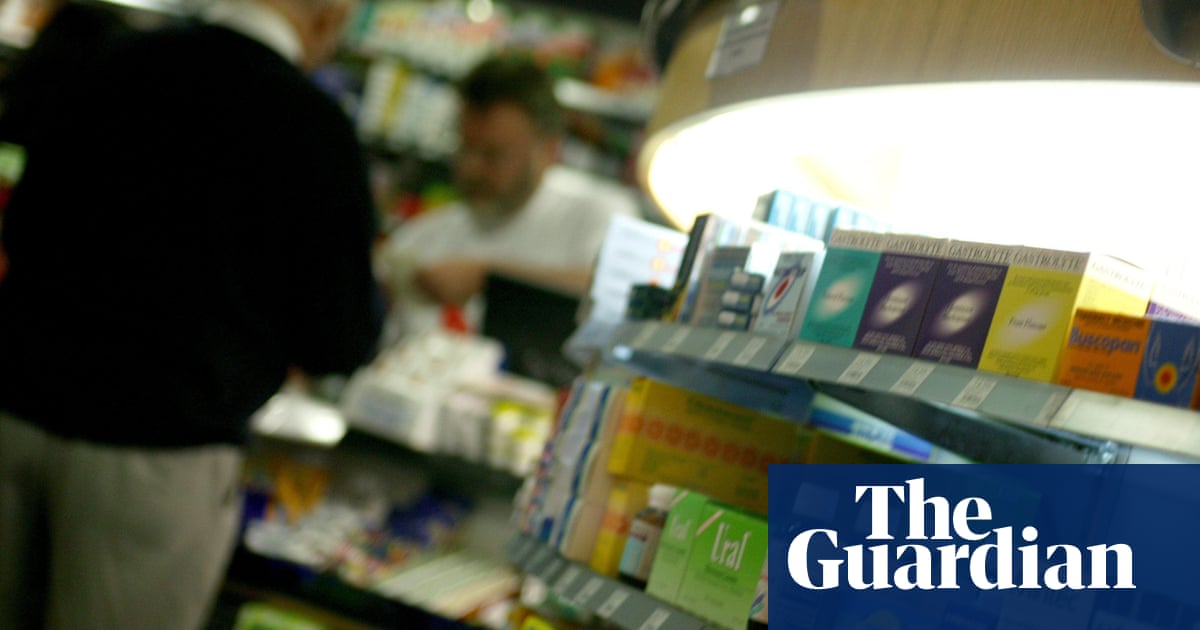Donald Trump’s pressure on medicine companies could drive up the cost of Australia’s Pharmaceutical Benefits Scheme (PBS) or see companies withdraw some medicines from Australian shelves , experts have warned.
The US president on Mondaythreatened to force medicine companies to lower their prices in the US, giving them 30 days to cut costs or face more severe actionin an executive order.
Faced with lower American profits, companies would be likely to demand higher prices elsewhere in the world and reject the lower prices offered by the Australian government, according to Flinders University health economist Prof Jonathan Karnon.
“It’s a pretty high probability,” Karnon said.
“Either the Australian government will have to pay more, or the Australian consumers won’t have access to as many new pharmaceuticals as they used to have.”
Sign up for Guardian Australia’s breaking news email
Trump’s threats to force down prices and profits should be taken seriously given domestic political pressures in a country where millions of peoplecannot afford life-saving drugs, said Jared Mondschein, research director at the United States Studies Centre.
“Companies may decide that it’s simply not worth their while to be listed in Australia if the price is not high enough, because the United States will say, ‘Look, it’s not fair for you to be giving them that price, but not us,’” Mondschein said.
Monday’sexecutive order didnot single out Australia, instead pointing to prices in other countries generally and demanding companies offer comparably low prices to Americans.
A report by research organisation Rand found that US drug prices were nearly four times higher on average than those in Australia andnearly three timeshigher than those in the OECD overall.
Mondschein suggested Trump may see the action as politically necessary given his decliningapproval ratingand longstanding calls for cheaper healthcare for Americans.
The Albanese government, which campaignedon protecting cheaper PBS medicines, indicated it would not pass on higher prices to Australia consumers.
“Our task is crystal clear: to strengthen Medicare, protect the PBS, deliver generational reform to aged care, and secure the future of the NDIS,” the health minister, Mark Butler, said on Monday.
Asked how the government was responding to the new US policy, a spokesperson reaffirmed that affordable medicines and the PBS were “not up for negotiation”.
Labor was on Tuesday assessing how the policy could impact Australian households and industry, as was pharmaceutical industry body Medicines Australia.
Sign up toBreaking News Australia
Get the most important news as it breaks
after newsletter promotion
“There is a lot that remains unclear,” Medicines Australia said in a statement.
American pressure on Australian pharmaceutical prices arose earlier in 2025 – while the Trump administration was considering its first round of tariffs – when American industrytook aim at the PBSnot allowing them to charge Australians more and for delays getting their products to market.
The Pharmaceutical Research and Manufacturers of America (PhRMA) hit back at Trump’s Monday announcement, but continued to demand action against foreign companies.
“Importing foreign prices from socialist countries would be a bad deal for American patients and workers,” the PhRMA president, Stephen J Ubl,said in a statement.
“To lower costs for Americans, we need to address the real reasons U.S. prices are higher: foreign countries not paying their fair share.”
Australia’s pharmaceutical sector, which Westpac estimated sent more than half its exports to the US in 2024, had so far been exempt from US tariffs but the Trump administration in April was investigating further measures.
Australian investors sold pharmaceutical shares on Monday, fearing a more severe executive order, but bought back in on Tuesday after the formal announcement, lifting local drugmakers CSL, Neuret and Telix.
